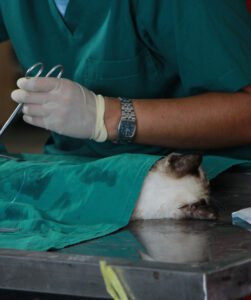Surgery can be a daunting process for both pet owners and their furry friends. However, with proper preparation and care, the surgery experience can be made much smoother and less stressful for everyone involved. In this guide, we will discuss some important steps to take in order to prepare your pet for surgery.
1. Consult with Your Veterinarian
Before scheduling a surgery, it is important to consult with your Local Veterinarian. They will be able to provide you with all the necessary information about the procedure and answer any questions or concerns you may have. It is also important to follow their instructions carefully in regards to pre-surgery preparations.
2. Fast Your Pet Before Surgery
In most cases, your veterinarian will require your pet to fast for a certain period of time before the surgery. This is to ensure that their stomach is completely empty, reducing the risk of complications during the procedure. Make sure to follow the fasting instructions given by your vet closely.
3. Arrange Transportation
Depending on the type of surgery and your pet’s condition, they may need to be transported to and from the vet’s office or a specialized surgery center. Make sure to plan ahead and arrange transportation for your pet on the day of the surgery.
4. Prepare a Comfortable Recovery Space
After their surgery, your pet will need a quiet and comfortable space to recover in. This could be a secluded room with minimal noise and distractions, or even just a cozy bed in a quiet corner of your home. Make sure to prepare this space beforehand with soft blankets, toys, and anything else that may help make your pet feel more at ease.
5. Follow Post-Surgery Care Instructions
Your veterinarian will provide you with detailed post-surgery care instructions for your pet. It is important to follow these instructions closely in order to ensure a successful recovery. This may include giving medication, changing bandages, or monitoring for any signs of complications. If you have any questions or concerns about the instructions, do not hesitate to contact your vet for clarification.
6. Monitor Your Pet’s Behavior and Appetite
After surgery, it is important to closely monitor your pet’s behavior and appetite. They may be groggy from anesthesia and may not have a normal appetite for the first day or two. However, if your pet is not eating at all or shows any other concerning behaviors, contact your vet immediately.
7. Keep Your Pet Calm and Restrained
In order to prevent any complications or injury during the recovery period, it is important to keep your pet calm and restrained. This may mean using a cone or Elizabethan collar to prevent them from licking or biting at their incision, or keeping them confined to a crate or small room to limit their movement.
8. Attend Follow-Up Appointments
Your vet will likely schedule follow-up appointments for your pet after their surgery. These appointments are important for monitoring the healing process and addressing any concerns that may arise. Be sure to attend these appointments as directed by your vet.
9. Provide Lots of Love and Affection
And now for the most fun step…. give your pets love of love and affection during the recovery phase. This can help keep them calm, reduce stress, and aid in the healing process.






